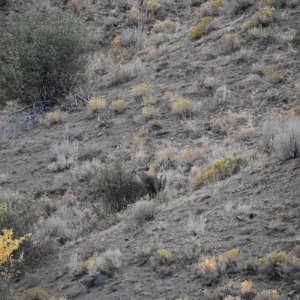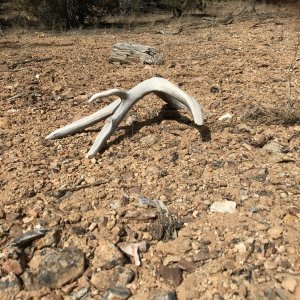Herb D and 30 Incher:
As someone who comes from a logging family, I can related to some of your frustrations. Yet as a hunter, I think your view may be somewhat jaded, as was mine when it came to a lot of the logging issues of the 1990's.
The problem with large scale logging on the National Forests had little to do with the amount of trees and sustainable harvest. For years, small loggers could make a decent living, provide other jobs for mill workers, truck drivers, small retailers, etc. It worked quite well for a long-time.
Most of the small loggers were concerned about the affects of logging, did all they could to minimize its impacts on watersheds, wildlife etc. All the small loggers I know, are/were hunters, so they were connected to the land.
Over time, as the forest service became more influenced by large corporate interests who were depending upon large volume, low cost stumpage on the national forests, the quality (from a wildlife standpoint) of the logging decreased. More and more loggers became dependent upon the policies and contracts with the large corporate timber companies that bought up the small mills, giving the small local loggers very few options.
After a while, the small loggers and associated businesses were at the mercy of the large corporations who owned the mills. Those large corporations had one level of accountability. That was profits to be paid as dividends to shareholders. This is completely logical in a capitalist system and I have no problems with it at all.
As the drive for profits grew, the demands for lowered standards in logging practices increased. I could take to you to many logging sites on national forest from twenty years ago, and they still look like a nuclear detonation site. I can take you to private lands who hired the same logging companies, and they look great, even though logged only five years ago.
My point is this. It wasn't the enviro's that shut down the subsidized corporate logging practices on the national forests, and the terrible wildlife impacts that came with it. It was the manner by which the large timber companies used the public lands for a short-term (15 year) profit spike, that made them easy targets for people to attack logging/loggers.
If they had treated the public lands with the same care and nuture required when they logged private lands, or their own lands, it would have been a lot harder for the opponents to shut down as much logging as they did. If you doubt me, go look at a timber sale on private land versus public land. You will see why logging practices used by these companies on public land came under such scrutiny.
The real pawns in this scheme were the small loggers, mill workers, truckers, and other small businesses, who for many years before the large corporate timber corporations, had found a sustainable model for utilizing this renewable resource. My brother is the only remaining logger out of seven uncles/brothers/cousins in our family. None of the small logging spin-off businesses in my home town exist today.
I bring this up to the discussion of energy exploration, as I see so many parallels. Public forest stumpage was/is much lower than private stumpage. Public royalty payments, impact fees, bonding and reclamation requirements in the energy business are much lower than those paid/required when drilling on private lands. Energy companies are pressuring land management agencies for lower standards, the same as the logging companies did.
After the wells are dry or prices receed to lower levels, who is going to care about the citizens of Pinedale, Daniels, Rangely, etc., and the culture, wildlife and way of life these residents had enjoyed before the big boom? Probably not the huge oil companies now making the big profits from this.
Again, don't get me wrong. I am all in favor of capitalism, but such a political/economic system provides an arena where the profiteers will presssure agencies to make policies that increase profits, while citizens will sooner or later take a stand to protect the other public land attributes they cherish, such as wildlife.
Can exploration be done in a way that is more friendly to wildlife? Sure can, but again, that will get in the way of profits, so it is unlikely they will do so without pressure from outside sources, such as this group and others.
The pressure from those outside sources is not and attempt to stop developement, but to merely make it more accountable to the other public land attributes it will impact. Does this cost money, and make it less profitable? Sure does, but that is cheaper than stirring up such a hornet's nest that the public shuts down the exploration on public lands, the way they shut down logging on public lands.
Watching this happen, I have little, actually no sympathy for the large companies and their shareholders. I do worry about the small businesses and citizens who will be holding the bag when the boom plays out.
The two of you may count me as a radical, but I have already sent my money to this group, hoping pressure from reasonable folks like hunters will allow for developement to continue, but do so in a manner that the deer and antelope herds will survive and thrive, not just merely scrape through.
Sorry to be so long, but hard to tell such a story in a sentence or two.
Happy Hunting!
"Hunt when you can - You're gonna' run out of health before you run out of money!"












